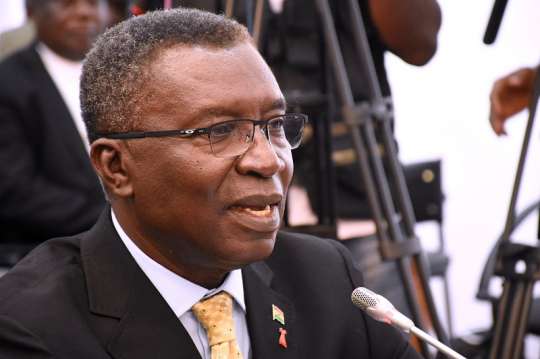The Ministry of Environment, Science, Technology and Innovation (MESTI) has launched a project to complement national efforts at solving the menace of plastic waste and marine litter.
The project, titled ‘Marine litter and micro plastics: promoting the environmentally sound management of plastics waste and achieving the prevention and minimisation of the generation of plastic waste’, is being implemented in collaboration with some international partners.
It forms part of the implementation of some multilateral environmental agreements Ghana has signed onto, namely the Basel, Rotterdam and Stockholm Conventions (BRS).
The BRS Conventions share the common objective of protecting human health and the environment from hazardous chemicals and wastes.
Specifically, the Basel Convention is focused on the control of trans-boundary movements of hazardous wastes and their disposal, and has been described as the most comprehensive global treaty dealing with hazardous waste materials throughout their life cycles, from production and transportation to final use and disposal.
The project, funded by the Norwegian government, will be implemented in partnership with the Basel Convention coordinating centre in Nigeria.
Inception meeting
At the launch and inception meeting of the project in Accra on Tuesday, the Minister in charge of MESTI, Prof. Kwabena Frimpong-Boateng, said over 3,000 tonnes of plastic waste was generated across the country every day but only between two and five per cent of the amount was recycled.
He said plastic waste constituted about 14 per cent of the entire municipal waste, while 35.6 per cent of wastes within the Accra-Tema metropolitan areas, including its coastline areas, were plastics.
“At the same time, pre-processing facilities to turn the plastic waste into pallets are critically lacking. The net effect of this is that our surroundings are littered with plastics while drains are choked with same.
Prof. Frimpong-Boateng said the situation informed the decision by President Nana Addo Dankwa Akufo-Addo to make plastic waste management one of the priorities of his development agenda.
He said the President had, therefore, instructed MESTI to confront the challenge by developing policies and programmes to deal with the plastic waste entirely in the long term, while salvaging all the opportunities out of the threat plastic waste challenges posed.
He said that challenge led to the development of the National Plastic Waste Policy, which focuses on the plastic value chain, from production to disposal until Ghana eventually banned the use of plastics.
“The project we are launching today is another opportunity for Ghana to work with partners to find solutions to the plastic and marine litter problem in Ghana to safeguard food safety, security and coastal tourism, human health, among other benefits,” he said.
Ocean litter
The Counsellor of the Norwegian Embassy in Ghana, Mr Stein Nesvag, said pollution of the oceans by marine litter and micro plastics was one of the fastest growing global environmental concerns, particularly because plastic litter travelling by the ocean knew no borders.
He said the problem could only be solved through global cooperation as litter travelled across the globe with the ocean currents.
“It is a key priority for the Norwegian government, and Norway is taking action both at home and on a global level. In 2012, an estimated 125 million tonnes of municipal solid waste was generated in Africa and it is expected to double by 2025,” he said.
Mr Nesvag said that put Africa at the risk of increasing the contribution to marine plastic litter.
He said if the flow of plastic litter into the ocean was left unmitigated, it would have huge impact on coastal economies.
“There are also tremendous opportunities in waste as a resource. Better management through re-use, recycling and recovery could inject an estimated $8 billion increase into the African economy,” he said.
He applauded Ghana for showing important leadership to address its waste management challenges.
Writer’s email doreen.andoh@graphic.com.gh

